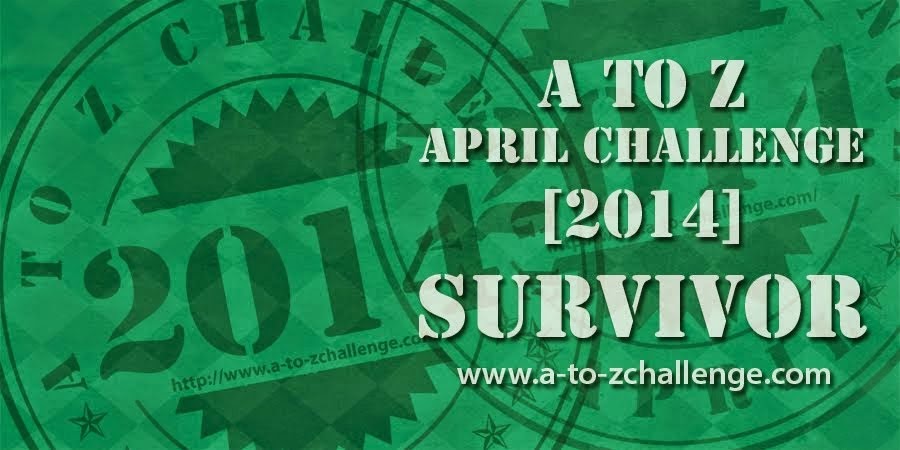When I read, it takes me to a beautiful meditative state. Even when I'm studying, rather than reading, I still don't need to make too much of an effort. I'm trying to achieve that with writing too. Sometimes, it works, I get engrossed in what I'm writing and the result is always close to my heart - special. It is this state of calm, quiet, serene peace that draws me to literature.
Every book is like a new friend that takes me on a journey through time, through emotions, and introduces me to feelings I never felt before. This feeling is like an addiction, the more I learn to lose myself, the more I'm drawn into it, with no intention of coming back. When I read Orkney, it was as if someone had been dunking my head in cold water. But even that was pleasurable. Zen, as I have have learnt, is never too far away.
With this, the A-to-Z Challenge comes to an end and I have only one wish for you, may you find your Zen.
*****************************************************Every book is like a new friend that takes me on a journey through time, through emotions, and introduces me to feelings I never felt before. This feeling is like an addiction, the more I learn to lose myself, the more I'm drawn into it, with no intention of coming back. When I read Orkney, it was as if someone had been dunking my head in cold water. But even that was pleasurable. Zen, as I have have learnt, is never too far away.
With this, the A-to-Z Challenge comes to an end and I have only one wish for you, may you find your Zen.
This is the twenty-sixth post for the April A-to-Z Blogging Challenge 2014.
Previously, Archaism, British literature, Critical Analysis, Drama, Edinburgh, Faust, Gothic Fiction, Humour, Interpretation, Journalling, Keats, Language, Metaphysical Poetry, Narration, Ode, Papillion(ed), Quatrain, Romanticism, Shakespeare, Tone, University, Victorian Literature, Wilde's Wit, Xenophobia, Yeats


